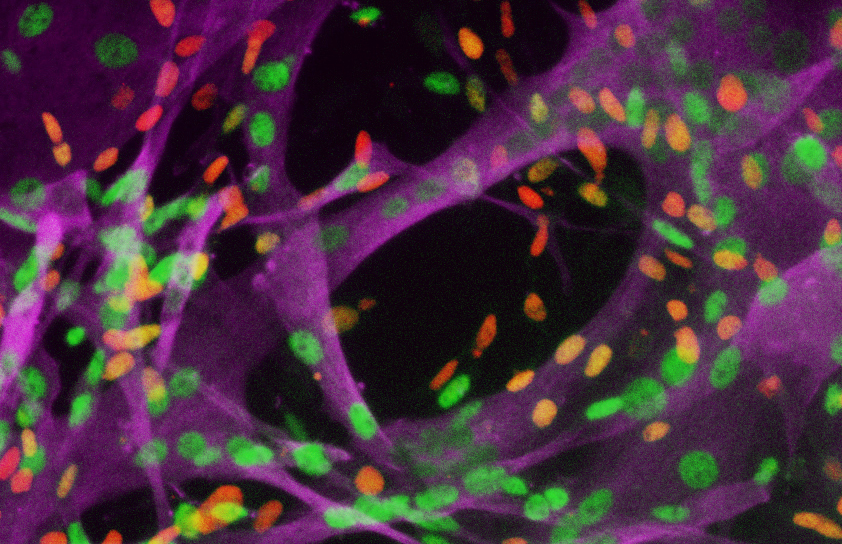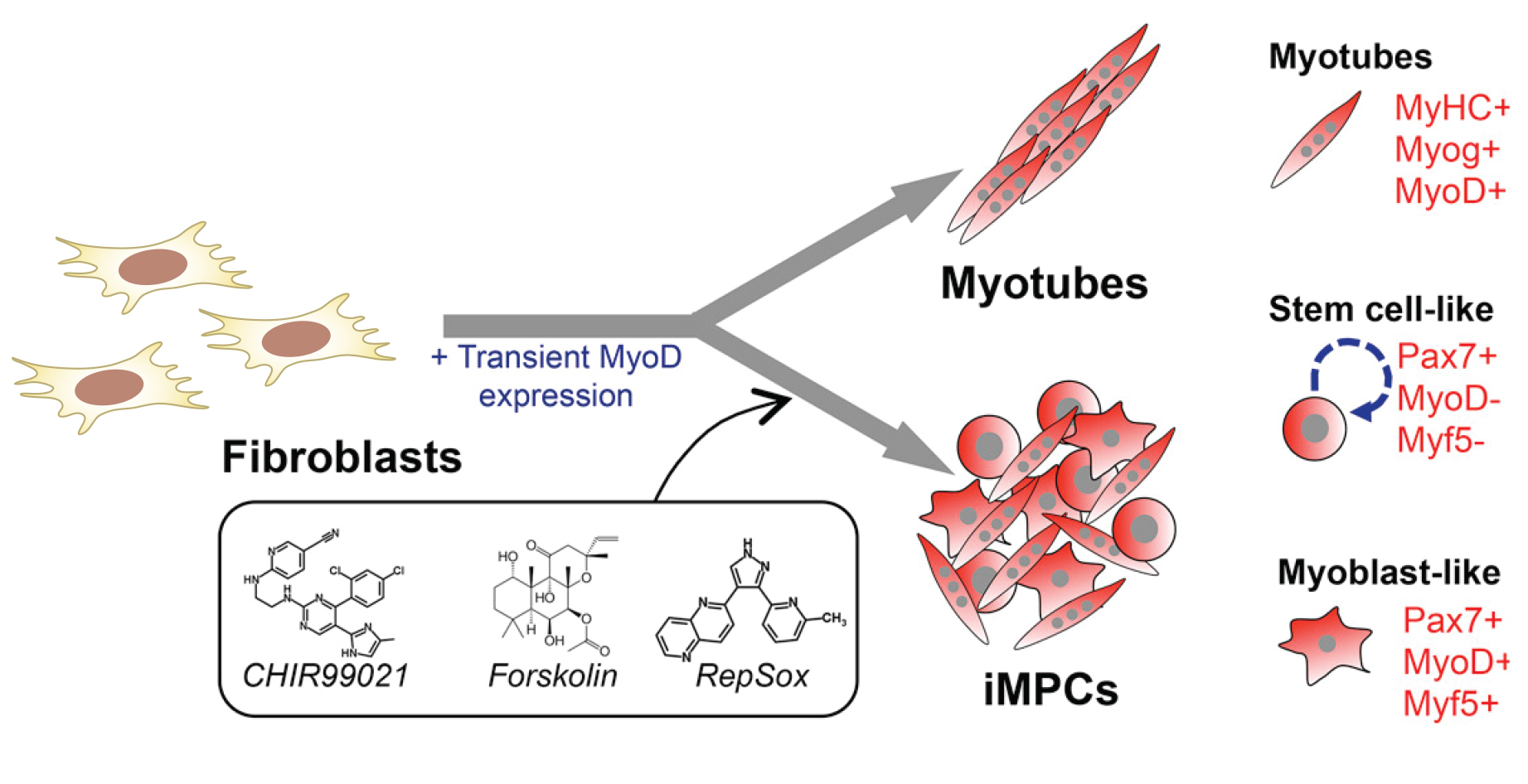Research

Transplantation of satellite stem cells offers an attractive approach to treat degenerative loss of muscle mass, however ex vivo expansion of these cells has proved challenging. Previously, we described a method to directly reprogram mouse fibroblasts into expandable satellite-like “induced myogenic progenitor cells” (iMPCs) by overexpression of the transcription factor MyoD combined with treatment of three small molecules (Stem Cell Reports, 2018). Undifferentiated iMPCs can propagate extensively in vitro while maintaining the ability to produce contractile myotubes and express markers of skeletal muscle stem and progenitor cells. Furthermore, iMPCs can differentiate into myofibers upon muscle transplantation, and a subset of cells remain as stem cells in vivo.
This unique system provides a new approach to explore myogenesis for basic research and therapeutic applications. However, very little is yet known about the mechanism/s that govern the direct conversion process or the molecular landscape of iMPCs in comparison to satellite stem cells. Furthermore, it is of interest to interrogate if iMPCs carry the potential to remedy muscular dystrophies in mouse models, and whether this unique cellular conversion can be achieved in human cells. Our lab is highly interested in elucidating these questions using in vivo and in vitro direct reprogramming and stem-cell based models.

